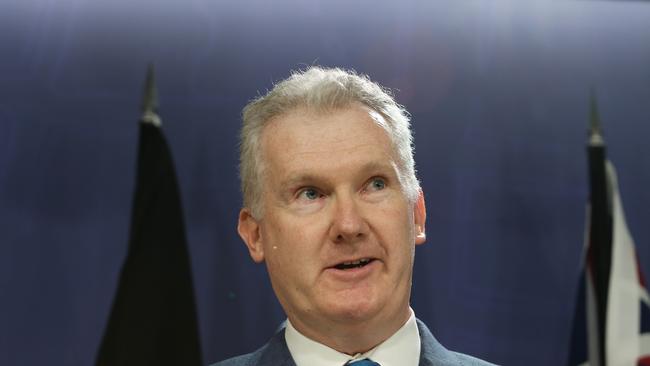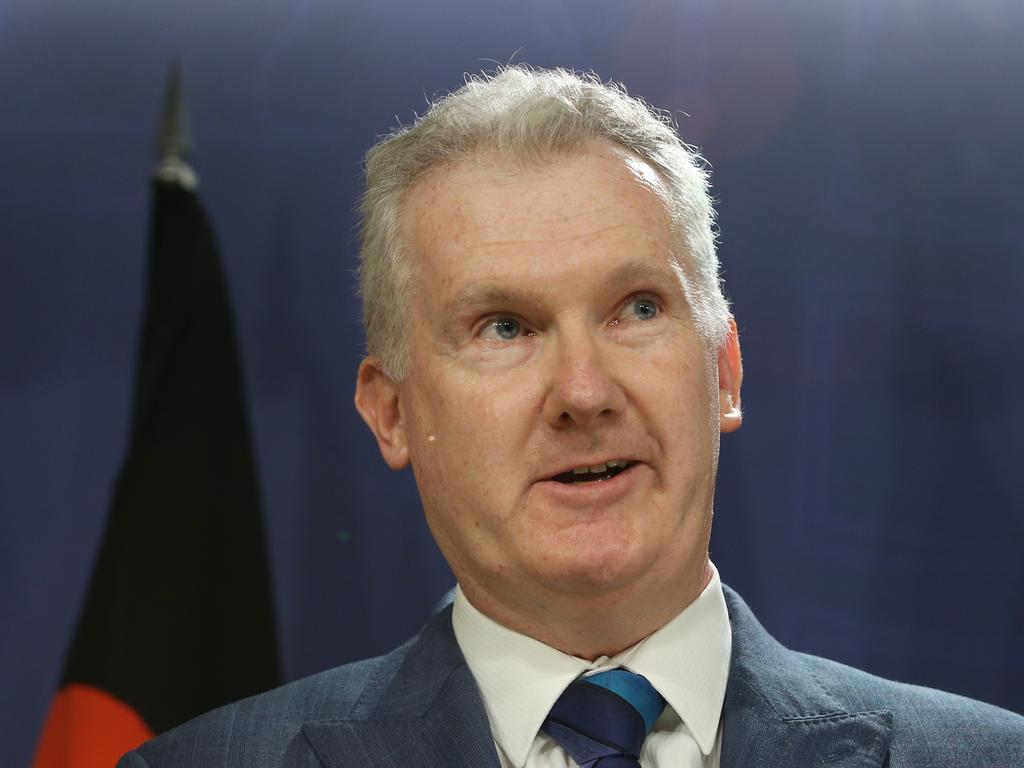
Both men would have rolled up their sleeves by now and sought to resolve the dispute between the Maritime Union of Australia and the Australian stevedoring division of DP World.
But this is not the style of the incumbent Industrial Relations Minister, Tony Burke. In a narrative not heard since the 1970s, he has lambasted the company for making a profit – forget about the return on assets – and effectively told DP World to cave into the demands of the MUA. These demands involve a pay rise of 16 per cent over two years, which is well above the rate of inflation.
According to Burke, “Australians are sick to death of profitable companies complaining about paying the same wages as their competitors”.
This is an extraordinary thing to say; it is also deeply anti-competitive. It completely ignores the key foundational principle of enterprise bargaining that agreements should suit the individual case, not be based on what competitors are doing. Indeed, the original Fair Work Act put strict limits on pattern bargaining.
A great deal of information about the workforce conditions in the stevedoring industry, including DP World workers, is deliberately kept from the public. Let’s be clear: these workers are extremely well-paid, with pay levels in excess of $150,000 per year plus very generous entitlements. Because of the intermittent nature of ship arrivals, workers are paid princely shift allowances, well in excess of community standards.
In the past, the stevedoring workforce has been overwhelmingly male, with jobs often handed down from father to son. In recent times, some women have secured work with the stevedores but the proportion of female workers is very low relative to the national average. There are strict limits placed on the use of casual workers and the unions generally choose who takes backfill positions.
DP world commands about 40 per cent of the stevedoring traffic in Australia. Its major competitor, Patrick, is more advanced in introducing technology and, as a result, its workforce is structured quite differently to DP World. In other words, the roles and technical requirements of the workers are not the same in the two companies. On the face of it, Patrick pays more than DP World but that’s not comparing apples with apples, as Mr Burke’s inflammatory comment implies.
A useful source of information is the Productivity Commission’s report, Lifting productivity at Australia’s container ports, released in early 2023. One of the main conclusions is that “both the process of bargaining to reach new agreements and the content of enterprise agreements affects port performance”.
It is clear from the evidence that the MUA has made protracted negotiations with the stevedoring companies into something of an art form. Multiple lengthy meetings, continuous industrial action ranging from low-level to outright stoppages, refusal to concede or agree – these have been the hallmarks of the MUA’s tactics. It has a habit of sailing close to the wind without actually acting illegally. The current case involving DP World is no exception.
Were it not for the fact that industrial action at the ports can have adverse effects on third parties (and indeed, on the economy as a whole), this might not matter. But the reality is the ports are a choke point in the real economy, which in turn enhances the power of the union to create a holdup situation.
Around the world, this state of affairs is typically reflected in special laws to ensure the continuity of essential services. The relevant unions, which are unsurprisingly strong in many countries, have legal restrictions imposed on them to ensure port operations are not interrupted.
In point of fact, there are some restrictions contained in the Fair Work Act. Section 424 states the Fair Work Commission must suspend or terminate protected industrial action if it might “cause significant damage to the Australian economy or an important part of it”.
There is also a new provision in the Act, introduced by the current Labor government, that enables access to arbitration by the FWC after nine months of intractable bargaining. This timeline has not yet been met in the DP World case; it’s not clear that the MUA would be keen for this ploy to be employed by the company. It should be noted DP World has not made any application to the FWC at this stage.
It should also be noted here that the union movement has decided it doesn’t like this new provision because of the scope it gives to companies to access arbitration against its wishes. In all likelihood, the legislation will be amended early this year to prevent companies from using this provision. The unions have the strong backing of the Greens on this matter.
The bigger picture here is that the ultimate aim of the MUA is to establish a multi-employer agreement across all the stevedoring companies – Patrick, DP World and Hutchison are the main ones, but there are some smaller ones – and to lock in extremely high rates of pay and generous conditions across the industry.
One of the frustrations for the MUA is that the current enterprise agreements don’t have common expiry dates, so they are somewhat limited in what they can achieve in the short term. But under the initial round of legislative amendments ushered in by Tony Burke, it is possible for the MUA to aim for multi-employer agreement in 2025.
An added benefit of having an omnibus agreement is that the scope for the companies to ameliorate the effect of industrial action can be effectively eliminated. At this stage, DP World is able to contract out some of its work to other stevedores not affected by the MUA’s industrial action. It’s not a perfect solution but it has meant that the ports have not ground to a complete halt in recent months.
Where does this leave importers, exporters, consumers and the Australian economy in the broad? The damage caused is considerable both in terms of the costs of port services as well as the productiveness of the ports. The risks of prolonged disruption are very high, particularly for those selling perishable products.
John Howard and Peter Reith, all those years ago, had a crack at fixing up the waterfront but their success was relatively short-lived. Under Tony Burke, we are heading in precisely the wrong direction, with a multi-employer agreement to be foisted on the companies, which will lock in highly restrictive and expensive conditions. It will take a future Coalition government to try to unpick the mess.








Can you imagine prime minister Bob Hawke refusing to intervene in an industrial dispute that is beginning to affect a large chunk of the national economy? Can you even imagine Bill Shorten, were he the industrial relations minister, refusing to do so?